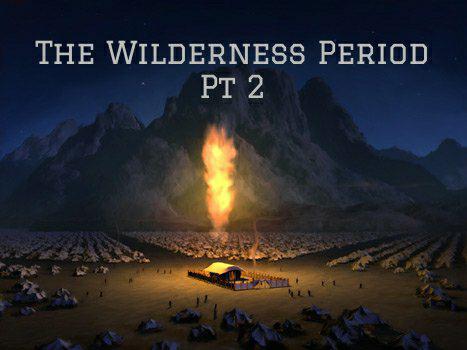Last week’s Five Minute Bible Study introduced the Wilderness Period. In five minutes you should have learned for what purpose God chose Israel to be His special people, and how Israel’s history is linked to the promises given to Abraham, Isaac, and Jacob at the beginnings of Genesis. This week we look further into the Israelite Wilderness Period to find out what we missed from Exodus 16 – Joshua 2.
What the Wilderness Period Was All About
Most people outside of the scholarly realm take little time meditating on the first five books of the Bible: Genesis, Exodus, Leviticus, Numbers and Deuteronomy. Here is a brief description of each book.
- Genesis = The Beginnings of the Nation (Israel)
- Exodus = The Redemption of the Nation
- Leviticus = The Sanctification of the Nation
- Numbers = The Testing of the Nation
- Deuteronomy = The Education of the Nation
While this description may be too concise, it still provides a comprehensive summary of each book in a way the average person can remember. The first four lessons in this series have more or less explained how Genesis, Exodus, and Leviticus develop the plot of the Bible that is set forth in Genesis 1-3. Now, pay attention and fill in the blanks by learning a thing or two about Numbers and Deuteronomy.
Numbers: The Testing of the Nation– This book of Moses can seem like a mixed bag of fruit at first glance. It is named after the two major censuses of Israel prescribed by the Lord (Numbers 1 & 26). Outside of counting the people, there are more laws concerning the priests, inheritance, and ethics. In this way the book reads much like the second half of Exodus and the entire book of Leviticus. However, you will notice there is much more narrative mixed into the book of Numbers. Amidst all of this story telling (narrative), there is a common similarity in the stories: God is testing Israel. The people leave Mt. Sinai in Numbers 10:11, and begin on their journey to conquer the land of Canaan, the land promised to Abraham. As any good father would do, God tests the hearts of Israel to see if they are ready and able to be His covenant people in the covenant land. Here are all the tests that Numbers records along the way-
- Hunger at Taberah (Ch. 11)
- Miriam and Aaron defy Moses’ authority (Ch. 12)
- Leaders sent out to spy the land of Canaan (Ch. 13)
- Korah, Dathan, and Abiram defy Moses’ and Aaron’s authority (Ch. 16)
- Thirst at Kadesh (Ch. 20)
- Hunger and thirst at the Red Sea (Ch. 21)
- Harlotry with Moab and Midian (Ch. 25)
- Judgment on Midian (Ch. 31)
Reading all these narratives will reveal that Israel failed every single test. They were clearly not upholding the mission statement that God had given them (see Lesson 4) and were disqualified to enter Canaan. Deuteronomy summarizes this period very succinctly…
“And you shall remember that the Lord your God led you all the way these forty years in the wilderness, to humble you and test you, to know what was in your heart, whether you would keep His commandments or not.” (Deut. 8:2)
Deuteronomy: The Education of the Nation– In keeping with the story of the Bible, God made a covenant with Abraham, promised him land and said, “You shall keep My covenant,” (Gen. 17:9). God made a covenant with Israel, promised them land and said, “Keep the words of this covenant, and do them,” (Deut. 29:9). Finally, God made a covenant with spiritual Israel on the cross (Rom. 2:28-29), promised them land (Mt. 5:5) and said, “Whoever hears these sayings of Mine, and does them, I will liken him to a wise man who built his house on the rock,” (Mt. 7:24). Deuteronomy is essentially that last, ominous, college course that stands between the student and graduation. In this book, Moses reviews Israel’s testing in the wilderness, reminds them of the law given on Mt. Sinai including the 10 commandments, and in Deuteronomy 28-29, Moses renews the covenant between God and the new generation of Israelites. In chapter 34, Moses dies. This 34 chapter marathon is very similar to the education the Prophet Like Moses (see Deut. 18:15-19) gives His disciples before His departure in Luke 24:13-49.
The Conclusion– “What is the conclusion to the whole matter?” Solomon asks in Ecclesiastes 12:13. His answer was the same as Moses’, “Fear God and keep His commandments, for this is man’s all,” (12:13). This was the lesson to be learned from all eight tests of Numbers, and it was the lesson taught by Moses throughout the whole of Deuteronomy. Leviticus 26 and Deuteronomy 28-29 detail the blessings if Israel kept the covenant and the curses if they broke the covenant. If you don’t learn anything else, learn this:
1) God’s covenants have always been conditional, 2) this means that entering into covenant with God does not punch your ticket to the promised land, 3) the curse for breaking the covenant is gruesome, 4) and Israel’s covenant history is fulfilled in Jesus Christ.



